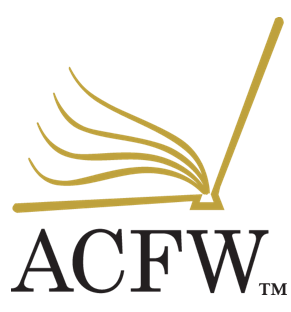I’m sure you’ve noticed that phrase on this blog and definitely if you follow me and my hashtags on Facebook. It’s a crucial piece of how I think and what I write about so rather than assuming you understand… here’s how “Everything is Theological” changed my life.
I first heard it as a senior at Moody Bible Institute by my brand-new advisor Mark Eckel. He had piece of paper tacked to his office door in Fitzwater Hall that said simply: “everything is theological”. No capital letters or anything. Just those words. Our class wasn’t big but we were the first group to complete the entire 4 year ACSI certification program from start to finish. We kinda thought we were a big deal.
Then comes this new advisor – a guy (in our mostly female prof selection). He essentially tells us that all we’d learned up to that point about integrating the Bible into our lessons had to be unlearned. We weren’t very nice to him. Slowly (very slowly) he changed our minds and our lives as he modeled for us what he meant.
He kept explaining that all truth was God’s truth. Pieces of it can be found everywhere – even in false religions. Finding truth there doesn’t validate the religion rather it points to the Creator who wants us to know Him. They are signs showing us who He is. As a very black and white sort of thinker, I could hardly process that. How is it that my life of list-following (listen to this music, not that! read these books, NEVER those!) law-abiding (grace mirage) life didn’t work?! I could teach a math lesson and slide in a biblical-integration at the end and call it good. A verse a day could keep the devil away, couldn’t it?! I could compartmentalize life and love it. You just watch me.
Mr. Eckel kept showing us this isn’t just theory but goes down to the very rubber-meeting-the-road in life. Living this out means you are not a good churchy person on Sunday or Wednesday night but transparent. That we learn to truly think about why we do things, not just simply doing them. Compartmentalization doesn’t just not work – it is antithetical to this way of life. Here is an example I remember him giving in our Methods of Lit class one day:
Why do we use a word like “vacation” to describe a relaxing time away from normal life. To “vacate” is to leave vacant. We certainly do not want to leave our minds empty. There are many texts of scripture to show how foolish that is. What we mean when we say “vacation” is really “holiday” – a holy-day. Remembering who we serve and why we serve and then enjoying His world because He gave it to us for our enjoyment – He even told us it was good!!
I wish I could say the change was complete as I studied under this man and heard the amazing true Truth he spoke, but as the saying goes “The Titanic doesn’t turn on a dime!”.
Though, it did start.
By the fall of 1999 (my Junior year), an author by the name of J.K Rowling was making tidal waves in the libraries and classrooms of Christian schools with her books about a boy named Harry Potter. They had a very polarizing effect: you either saw no harm in them and truth-be-told actually enjoyed them or you thought those who did should be burned alive at the stake. Many school administrators made public announcements banning them from school libraries and classrooms – to many conservative parents’ applause. I was definitely in the latter group as a college student. It fit very well in my “either-or” “all-or-nothing” way of living.
Later as a teacher in one of those Christian schools who had banned them, I had a few students who told me how they were reading them at home. At the time, I couldn’t believe these “Christian” parents would allow that. I had all sorts of reasons for disliking the books. 1) Harry Potter repeatedly chooses to break school rules to save whomever from whatever and in the end is rewarded with everyone’s applause and thanks. I was a rule-follower and that just didn’t work for me. 2)Witchcraft and Wizardry are strictly forbidden in the Bible. Yet C.S Lewis wrote a fantastic story using pieces of these things to reveal the greater story of the Bible. Magic and things like these aren’t horrid in and of themselves in a story. J.R.R Tolkien uses them plentifully as well.
I began to realize toward the end of my time as a teacher that these books offer a platform to have conversations about the “why” and “what” going on in the books. Banning the books didn’t stop the fever to read them (as usual) but it did shut the door on having a great discussion with the readers. That I believe is the greater travesty.
If you’re one step ahead of me in this thought progression, you will likely be saying “Now, wait a minute, Ruth. What about the Shades of Grey series and the Twilight series?? You’re not saying those are worth reading to have discussions are you?!”
I have a few thoughts on those. I find good fiction worth reading most any day and Shades of Grey wouldn’t be considered good writing in any universe. It’s merely women’s soft porn. The Twilight Series, though, I just couldn’t get into. At first, I resisted reading because of the manipulative relationship he has with her and how it’s supposed to be hugely romantic that he breaks into her room just to watch her sleep and how he has to control parts of her life. Um. No. If that were my daughter, he would have a restraining order filed on him. That is not a mutual relationship based on trust not to mention God. Though after all the hype died down, I realized maybe “everything is theological” applies here too. So I tried the first book. It felt like I had taken a time machine back into highschool youth group. All the drama, the angst, the undercurrents, the hopes and fears, the crushes… and I just couldn’t read any more. I went through it once, that’s enough for me.
Now, as a mom to three little readers, it’s difficult to keep up with the rate they read books and series. I do make a point of reading whatever they are so I am able to discuss and help them learn to filter and sift and question. The current craze for my oldest is The Unwanteds series by Lisa McMann (a local author) and The Percy Jackson books. I have to say those are very fascinating! The Unwanteds first book is intriguing but I’m finding it hard to get into again. My middle one loves historical biographies so I’m helping him learn to recognize historical bias in the author. The youngest is just getting into chapter books. I’m thinking the challenge with him will be finding a book series that is humorous yet intriguing to hook his mind. Hmmm… book idea. 🙂
The prof who introduced me to this phrase? His name is Dr. Mark Eckel. He has his own blog and academic pursuits. Check out his thoughts and hows and whys at www.warpandwoof.org and www.comeniusinstitute.org. He also has a radio program: Warp and Woof Radio where he talks about all sorts of issues in our culture. Think deep thoughts. You will be glad you did!
I hope this post helps you understand this odd sounding phrase. It can be a bit scary to consider for black/white thinkers, but I know it is worth the struggle.




Leave a Reply